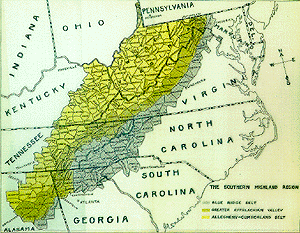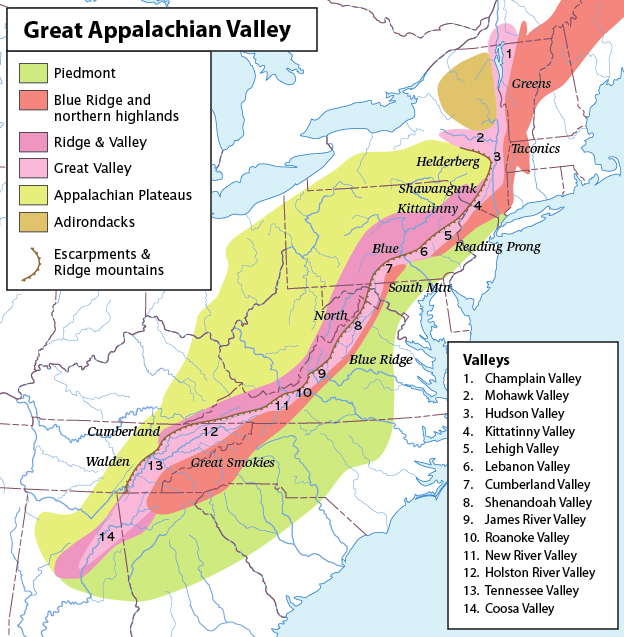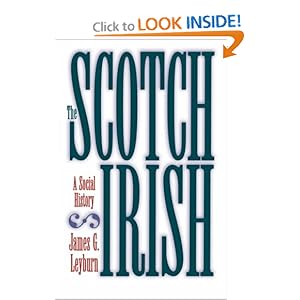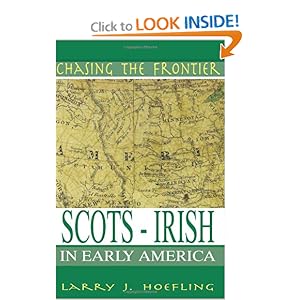Over the weekend I found a very interesting article: The Appalachian Experience by Cratis Williams.
I am posting a link to this article here on Baptist Board (see references below) because Williams discusses the introduction of Calvinism in the sixteenth century to the Scottish Border people living between English counties to the south (Church of England) and Highland Scots living to the north (Catholicism).
A century later it was these same Scottish Border people, removed to Ireland, who settled the region in the American colonies that would later be known known as Appalachia. The label of "Scotch-Irish" was given to these migrants from North Ireland. They began to arrive in the colonies about 1720 (my folks came over in 1723 as indentured servants). Strictly speaking, they were neither Irish nor Scots. A more accurate label would have been Anglo-Celts. Often today, many people refer to their heritage as "Arsh."
And how about those Calvinistic roots?
. . .
I descend from Scotch-Irish ancestors. However, as Williams stated, I feel more Anglo-Celt than Scotch-Irish. My church heritage is a mixture. I feel I stand in the middle of the old-line Baptist and Methodist persuasions mentioned above by Williams. I currently fellowship with a Free Will Baptist church. To me, old-line Baptist, such as United Baptist, Free Will Baptist, and Old Regular Baptist have similarities. Some of our churches, however, may not admit to such similarities.
And I feel more at home with these old-line churches than with contemporary Independent or Southern Baptist fellowships. You know in the first few minutes after walking in the front door, if you fit or not. Sometimes, you know walking across the parking lot--or just driving by.
I have not retained my Calvinistic roots--although I did try to do so with a General Association of Regular Baptist Church (GARBC) many years ago. Somehow, Calvinism does not stick to my ribs.
Maybe it is the geography. For seven years, I lived close to the Cane Ridge Meeting House, the location of the 2nd Great Revival (1801). Perhaps, when I lived in a log cabin on that location, the preaching of those great revival days was still in the soil nourishing the vegetables of my garden or hanging in the air vibrating from the many walnuts I used to collect, crack, and eat? Maybe I continue to walk about with some of the Celtic Spiritual make-up from 2000 years ago? Maybe, it is the way God created me, Jesus Christ saved me, and the Holy Spirit continues to guide me?
. . .
How many of you descend from Scotch-Irish ancestors?
We are special, you know!
Have you retained your Calvinistic roots?
...Bob
. . .
REFERENCES
Williams, Craig. (1977). The Appalachian Experience. Historical Sketches of Southwest Virginia, publication no. 11, 1977. Wise, VA: Historical Society of Southwest Virginia.
Cratis D. Williams Graduate School, Appalachian State University, Boone, NC.

I am posting a link to this article here on Baptist Board (see references below) because Williams discusses the introduction of Calvinism in the sixteenth century to the Scottish Border people living between English counties to the south (Church of England) and Highland Scots living to the north (Catholicism).
When introduced to John Calvin’s Institutes of Religion in the sixteenth century, the Scottish Border people found in Calvin’s harsh doctrines an interpretation of man’s relationship to man and God congenial to their experience. That man is in the image of God and deserving of respect for that image caressed their personal independence and pride. That man is depraved and unworthy of God’s grace they did not find it necessary to look far to see. The fatalism that had become a part of them was easily translated into the doctrines of predestination and election. God’s sovereignty they could respect and the supreme authority of the Scriptures they could accept as inquiring persons in their own individual rights but not from a prince as the arbiter of sacred matters. The promise that God elected in his grace and predestined at the creation a few unworthy mortals to share eternal bliss with Him offered more felicity than had been the lot of the Borderers on earth. Small wonder that they should become the most ardent supporters of the Protestant Reformation in the British Isles (Williams, 1977, p. 3).
A century later it was these same Scottish Border people, removed to Ireland, who settled the region in the American colonies that would later be known known as Appalachia. The label of "Scotch-Irish" was given to these migrants from North Ireland. They began to arrive in the colonies about 1720 (my folks came over in 1723 as indentured servants). Strictly speaking, they were neither Irish nor Scots. A more accurate label would have been Anglo-Celts. Often today, many people refer to their heritage as "Arsh."
The story of the Scotch-Irish within historical times began in 55 B.C. with the invasion of Great Britain by Julius Ceasar. The hereditary leaders of the Britons, who were Celts and of the same stock that had spread across Europe prior to the rise of the Greek and Roman Civilizations, who escaped murder or capture by the Roman armies fled northward or westward toward Scotland and Wales. . . . The fleeing Celts, unable to get over the rim into the Highlands, hid and later settled as small farmers in the hilly country along the Scottish Border. . . . The Romans, finding Scotland of little value, considered it not worth conquering and built a wall across Great Britain . . . known as Hadrian's Wall (Williams, 1977, p. 2).
And how about those Calvinistic roots?
At first overwhelmingly Presbyterian in religion, the rural mountain folk abandoned the Presbyterian churches for old line Baptist and Methodist persuasions following the evangelistic revivals along the mountain border in the early 1800s, but their descendants have retained the Calvinistic doctrines of their ancestors even into the present generation (Williams, 1977, p. 6).
. . .
I descend from Scotch-Irish ancestors. However, as Williams stated, I feel more Anglo-Celt than Scotch-Irish. My church heritage is a mixture. I feel I stand in the middle of the old-line Baptist and Methodist persuasions mentioned above by Williams. I currently fellowship with a Free Will Baptist church. To me, old-line Baptist, such as United Baptist, Free Will Baptist, and Old Regular Baptist have similarities. Some of our churches, however, may not admit to such similarities.
And I feel more at home with these old-line churches than with contemporary Independent or Southern Baptist fellowships. You know in the first few minutes after walking in the front door, if you fit or not. Sometimes, you know walking across the parking lot--or just driving by.
I have not retained my Calvinistic roots--although I did try to do so with a General Association of Regular Baptist Church (GARBC) many years ago. Somehow, Calvinism does not stick to my ribs.
Maybe it is the geography. For seven years, I lived close to the Cane Ridge Meeting House, the location of the 2nd Great Revival (1801). Perhaps, when I lived in a log cabin on that location, the preaching of those great revival days was still in the soil nourishing the vegetables of my garden or hanging in the air vibrating from the many walnuts I used to collect, crack, and eat? Maybe I continue to walk about with some of the Celtic Spiritual make-up from 2000 years ago? Maybe, it is the way God created me, Jesus Christ saved me, and the Holy Spirit continues to guide me?
. . .
How many of you descend from Scotch-Irish ancestors?
We are special, you know!
Have you retained your Calvinistic roots?
...Bob
. . .
REFERENCES
Williams, Craig. (1977). The Appalachian Experience. Historical Sketches of Southwest Virginia, publication no. 11, 1977. Wise, VA: Historical Society of Southwest Virginia.
Cratis D. Williams Graduate School, Appalachian State University, Boone, NC.

Last edited by a moderator:







